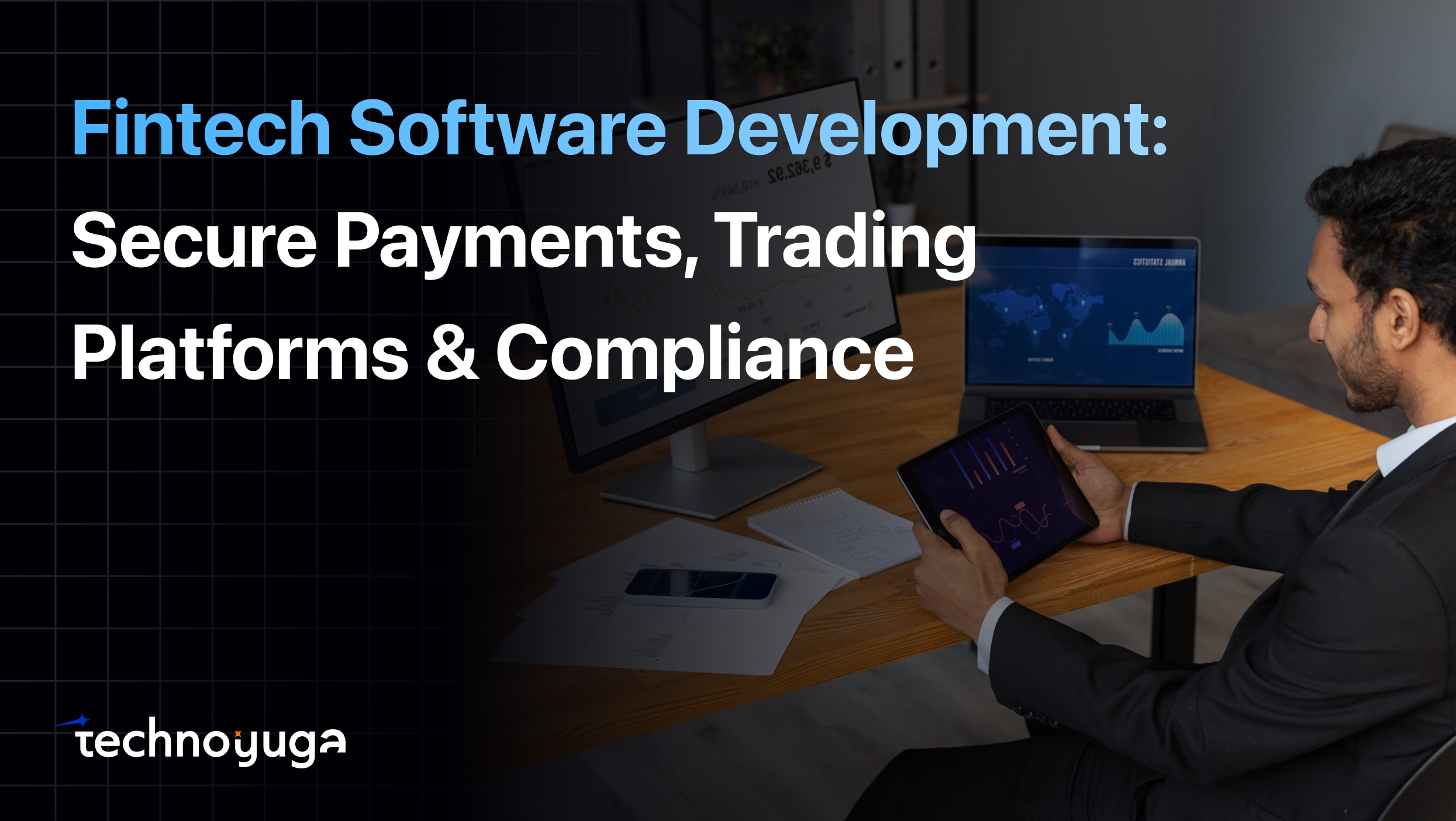Events take place all over the place in today’s world where they happen in the form of concerts and sports matches, as well as corporate conferences and workshops. With increasing need for hassle free ticket booking and event management, businesses are turning towards the building of an event booking app to provide a hassle free experience for users.
Read this article if you are looking for an event booking app development process, the event booking app technical stack and even the best Event Booking App UI/UX practices. In 2025, whether you’re an entrepreneur, startup or established business, developing an event booking app is a great investment.
We will explore all the points that need to work out in event management app development for both app design and approach to mobile app development. In addition, we will also talk about the process and key technologies of on-demand event booking app development as well as the cost factors associated with it.
If you are creating an event app, then finding the right on demand app development company becomes necessary. Hiring dedicated developers will enable you either with Android app development, iPhone app development or a cross platform solution, whatever you wish to build! This will also include the costs of developing a mobile app, the current trends of event booking apps and you can make informed decisions.
At the end of this guide, you’ll know how you can build a ticket booking app and the tech stack for an event booking app itself to make it easy to develop a scalable and a rich feature loaded platform. Let’s get started!
Key Features of an Event Booking App
When building an event booking app, you must ensure that the app has various basic features to provide a good user and event organizer experience. No matter if it is an event booking app for concerts, conferences, or local meetups, a process of event app development should be structured well. In this article we will look into the necessary event booking app features and how they make your app a success.
1. User Registration & Profiles
It is important that your app is easy to sign up using email, phone numbers or their social media accounts, so as to engage the users. A flawless event booking app has a UI/UX design that makes it easy to navigate and customize.
2. Event Listings & Categories
Users should be able to browse events, depending on categories such as concerts, sports, business or entertainment. Building an event booking app design with a powerful search filter makes event booking easy for users.
3. Ticket Booking & Payment Integration
When you develop an event app, a secure and smooth payment would be a big part, therefore it is mandatory to integrate with multiple gateway (PayPal, Stripe, Razorpay, Apple Pay, Google Pay). As we consider tech stack for the event booking apps, payment security must be at the top of our agenda.
4. Seat Selection & Reservation
Finally, any on demand booking app development project should come with an interactive seat selection system. It provides the comfort of choice of seats based on availability while also making the comfort of acquiring seats easy for the users.
5. Push Notifications & Reminders
The app should also include updates on upcoming events, discounts and last time changes, to provide a better user engagement. This is a very important part of event booking in mobile app development.
6. Reviews & Ratings
Users should be able to positively contribute after attending an event in the form of reviews and ratings. This feature creates credibility of the event app, as it helps the new users to make a good decision, thus improving the event app development process.
7. Event Organizer Dashboard
An admin panel should be available for creating, editing and managing events for event hosts. Also, it should have analytics and sales tracking tools for getting better insights about the event.
8. AI-Powered Personalized Recommendations
With the introduction of event booking app trends, Artificial Intelligence should suggest events based on user preferences and past booking. This enables the event management app development process to be more complex yet easier for use.
9. Social Media Integration & Sharing
This can get more people to engage with this event by allowing users to post the details of the event on Facebook, Instagram, or Twitter. A key in building an event booking app that is organically getting popular is this feature.
10. Security & Data Protection
Security should be a top consideration to think when thinking about the event booking app tech stack. User experience is secure through payment processing, data encryption and fraud prevention measures.
Tech Stack for Building an Event Booking App
In building an event booking app, choosing the right technology is very important. The choice of the tech stack eventually influences the way your event booking app is developed; the performance and scalability of your app. Curious on how to build an event app from scratch or do an upgrade with the latest tools and frameworks, it’ll go without saying that it is highly possible to provide a seamless user experience.
1. User Interface & Experience, Frontend Technologies
When you are using your event booking app, the users interact with the frontend. The event booking app UI/UX design should be well planned and should help in smooth navigation and increases the user engagement.
Recommended Technologies:
- React Native or Flutter – The best for the development of a mobile app for event booking (for both Android and iOS).
- The Swift (iOS) & Kotlin (Android) – Best suitable for iPhone app development and Android app development firm’s projects, which require high speed.
- HTML5, CSS3, JavaScript – For web-based event management app development.
2. Server-Side Logic & Data Processing
In the event booking app development project the backend owns up the business logic, database management and server communication.
Recommended Technologies:
- Node.js with Express.js – High-speed and scalable for developing an event booking app.
- Django (Python) or FastAPI – Great for AI-powered recommendations and security.
- Rapid development of the event app for a startup using Ruby on Rails.
3. Event & User Data will be stored in this Database.
A truthful database is necessary to manage events tickets, user profiles and trades.
Recommended Databases:
- Structured, secure for event booking app tech stack is PostgreSQL or MySQL.
- It is suitable for handling event related large data using a No SQL database called MongoDB.
- In an event booking app design, the Firebase – Real-time database is used to get instant updates.
4. Payment Gateway Integration (For Ticket Booking & Transactions)
The first aspect of how to create a ticket booking app is to ensure that the payment experience is smooth.
Recommended Payment Solutions:
- Razorpay, Stripe, PayPal, Square – Used widely and secure.
- Google Pay & Apple Pay – Popular for on-demand event booking app development.
5. Scalability & Security & Cloud Hosting & Storage.
It is a scalable hosting solution which makes sure app scales smoothly.
Recommended Cloud Services:
- AWS (Amazon Web Services) – Industry leader for secure hosting.
- Google Cloud Platform – Ideal for AI-based event booking app trends.
- Firebase Hosting – Easy setup for startups.
6. Third Party APIs & Integrations (Making Function More Powerful)
Integration of APIs allows event app development to be easier and gives it more software features.
Common API Integrations:
- Google Maps API – Location-based event suggestions.
- Twilio or Firebase Notifications – SMS & push notifications.
- AI & Chatbot APIs – Enhancing user engagement.
7. Security & Compliance (Protecting User Data)
Security is of a top priority while building an event management system.
Recommended Security Measures:
- SSL Encryption – Protects sensitive data.
- OAuth & JWT Authentication – Secure user logins.
- GDPR & PCI-DSS Compliance – Ensures data privacy and secure payments.
8. Mobile App Development Cost & Hiring Developers
Cost of mobile app development depends on the features, complexity, and place of the mobile app development team. An on-demand app development company’s ability to help in building a robust event platform if you are looking to hire dedicated developers.
Development Process to Build an Event Booking App in 2025
1. Market Research & Competitor Analysis
Looking at the industry trends and preferences of the users, market research is necessary before you start the development process. Competitors analysis helps to show where there are gaps in the current event booking apps and possible innovation.
Therefore, research would consist of the study of types of events, user behavior and pricing models. App reviews, user surveys, and user interviews are all helpful. In this phase, means of selecting the target audience are chosen, the app is defined to accomplish its objectives, and monetization strategies are ascertained. It is a well-researched foundation which makes the app meet user’s expectation and set it apart from the hot competitive market. Doing this work in advance reduces the risk of failure and increases user adoption.
2. The first will be to define Core Features & Monetization Model.
There are necessary features for a successful event booking app such as user sign, event posts, ticket booking, payment with reviews. It has further improvement features such as real time seat selection, AI powered recommendations and integration with social media.
If business goals are aligned with the monetization model, it should be a combination of something like a commission-based earnings model or a subscription plan or a premium listings option for the event organizer. Ad and sponsorship revenues can come from in app ads. Early definition of features reduce time to produce, since the final product is both ready to hit the market and provides great user and client organization experience, ideally.
3. Create design of UI/UX for Smooth User Experience.
It is quite important for an event booking app’s success that it is designed with an intuitive UI/UX. It should be designed with simplicity, ease of navigation, excellent visual appeal elements. An interface that is well structured permits users to browse the events, book tickets and, manage reservations. Visualizing the app’s layout in wireframing and prototyping before development.
Responsive design ensures that the layout and components of the website modify according to the screen sizes on which they are viewed. Such accessibility features prioritize user friendliness with the app. Finally, usability testing with potential users helps refine the design and removes frictions or frictions. A well-made UI / UX increases user engagement and lowers retention rates.
4. Development & Integration (Frontend, Backend, API)
Frontend, backend coding and integration of all third-party APIs is done in the development phase. Frontend should be having a smooth user interface using technologies like React Native or Flutter.
With Node.js, Django or Ruby on Rails it is possible to build the backend, as the data and business logic is handled. Payment gateways, maps, notifications are brought via API integrations. Secure and scalable data management is done through cloud-based databases such as Firebase or PostgreSQL. Iterative tests lead to iterative improvements for the app ensuring the app improves based on user feedback using the agile development methodologies. The application is bug free because of efficient coding practices and rigorous testing.
5. Bug Fixing, Load Testing, Data Protection and Testing & Security.
Thus, testing must be thorough to confirm that the app is working, and the experience is smooth. The functional testing tests core features such as checking event listings, ticket booking, payment etc. The application should be able to bear the high traffic load without crashing.
Security testing of user data protects it with encryption, authentication and ensures that all security principles are perfectly met with GDPR and PCI-DSS regulations. The aim of penetration testing is to find vulnerabilities that a hacker could use. Usability testing provides real in user feedback, which in turn helps refine the interface. Automated and manual testing methods can find bugs early enough before we face a problem after completion of the project. The well tested app builds trust and lower the level of user dissatisfactions.
6. App Store Optimization, Social Media, Ads when launch & marketing
The app is ready for launch when it is developed and tested. To publish on the Apple App Store and Google Play Store, one must optimize their apps for the app store. This is called app store optimization (ASO). User acquisition is driven by strong marketing strategy, such as social media promotions, influencer collaboration and online ads. Through email campaigns, blogs and recent press releases, awareness is created with the potential users.
With discounts or referral programs it gives you the opportunity to provide an incentive for people to download and engage. A good one will launch the app well and get to the right audience delivering enough traction faster. It allows for post launch monitoring for tracking performance and as well as areas that can be improved.
7. Post-Launch Support & Updates
After launch, continuous monitoring and updates are crucial for maintaining app performance and user satisfaction. Regular updates introduce new features, fix bugs, and enhance security. Analyzing user feedback helps address pain points and improve functionality. Providing 24/7 customer support builds trust and ensures smooth issue resolution. Monitoring app analytics helps track user engagement, retention rates, and conversion metrics. Competitor analysis post-launch ensures the app remains competitive in the evolving market. A strong post-launch strategy guarantees long-term success, user loyalty, and continuous business growth in the event booking industry.
Conclusion
To build an event booking app 2025 needs to be properly planned, the right technology stack, and a user-centric approach. Businesses can establish a successful event management platform by integrating most of the necessary elements, a seamless UI/UX and security. In such a case, partnering with an on-demand app development firm or trust to hire dedicated architects will help you through a hassle-free development process.
There will be continuous updates, marketing strategies and user engagement that will ensure the app remains competitive. In light of this, as event booking trends evolve, the app’s functionality can be further enriched with the use of AI, AR, blockchain, and others. Developing an event booking app can prove to be a profitable business venture.
FAQs
1. How long does it take to develop an event booking app?
The complexity of the features and the amount of development team involved will determine the development timeline. It takes anywhere from 3-6 months for a basic to 6-12 months for an advanced event booking app with AI, Seat Selection etc, and testing.
2. How much does it cost to develop an event booking app?
Mobile app development costs depend on certain features of mobile app, its design and your development team’s location. A simple event booking app could be for about $10,000-$30,000 whereas a complete event booking app with AI, AR, blockchain integration might cost a few $100,000 or above.
3. What should a book event app include?
The key event booking app features include user registration, event listings, ticket booking, secure payments, notifications, reviews, and organizer dashboards. User experience and engagement is enhanced with features like AI powered recommendations, interactive seat maps and chatbots.
4. How can I monetize an event booking app?
Monetization methods are based on fees on the ticket sales, in app advertising, featured event listing, partnerships with event organizers and subscription plans. A set up of a defined event app development process can guarantee a sustainable revenue model for the long term profitability.
5. How do I ensure the security of user data in an event booking app?
Security measures include SSL encryption, secure authentication (OAuth, JWT), compliance with GDPR and PCI-DSS, and regular security audits. Implementing fraud detection algorithms and event booking app trends like blockchain ensures data protection and prevents unauthorized access.








